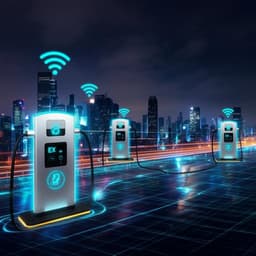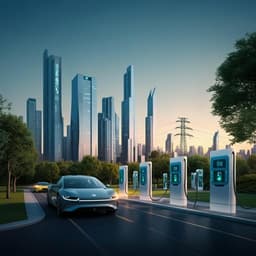
Engineering and Technology
Charging infrastructure access and operation to reduce the grid impacts of deep electric vehicle adoption
S. Powell, G. V. Cezar, et al.
Electric vehicles are transforming the energy landscape, but how will they impact our electricity grids? Join researchers Siobhan Powell, Gustavo Vianna Cezar, Liang Min, Inês M. L. Azevedo, and Ram Rajagopal as they explore innovative charging strategies and their implications for grid operations in the face of rapid EV adoption in the US Western Interconnection.
Related Publications
Explore these studies to deepen your understanding of the subject.







